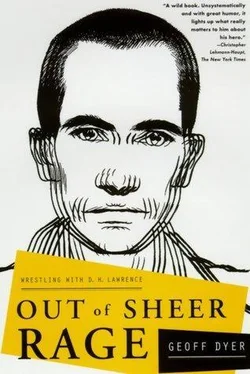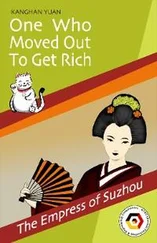Rilke’s poem also ignores a possibility that it cannot but suggest: that after a while one acquires a resistance to returning, that one’s capacity for contentment is diminished by the flight into adventure. Perhaps the further you fly from home the more stifling home becomes. One returns not to serenity but to a sensation of suffocation which can only be alleviated by further wrenching departures. Seen in this light, Lawrence became a prisoner of departures, his capacity for contentment diminished by constant travelling. Hence the increasingly desperate tone in which he ended up asking various friends where he might live.
Bear in mind also that although Rilke’s poem ends with the idea of return, its emotional trajectory inexorably suggests a realm of contentment which can be enjoyed only by those who abandon any idea of returning, who keep going, who make their home in flight. If the dove that ‘ventures outside’ returns to ‘know serenity’, what does the bird experience who keeps going? This leads to the imperative, beyond Rilke, suggested by that admonition of Neruda’s: ‘He who returns has never left.’ Lawrence had a premonition of this idea at the Gotthard Pass and at moments he surrendered to it as if to a destiny. ‘I feel I shall wander for the rest of my days. But I don’t care.’
There is a moment in Ian McEwan’s novel The Child in Time when, asked by his young son why the railway lines ‘grew together as they got further away’, the father ‘squinted into the distance where question and answer converged’. In a similar, light-hearted way Lawrence saw that there was a point where Rilke and Neruda converged: ‘Oh Schwiegermutter it must be so,’ he wrote from Australia, ‘it is my destiny, to wander. But the world is round, brings us again back to Baden.’
He is an extremely complex case, Lawrence. Traces of all the potentialities and ambiguities of Rilke’s poem can be found in his life. What is certain, though, is that his restlessness, his desire to move on stayed with him to the last. ‘This place no good’: these were the final words of what, in many editions, is printed as his last letter. He was referring to the sanatorium, where he died, the aptly-named ‘Ad Astra’. What better corrective to the concealed assumption within Rilke’s poem — to the commonly held belief — that there will at some point be some serenity, some contentment?
The essence of Lawrence’s life and writing is away from the notion of achieving some permanent state of unruffled serenity. Never content simply to record his transitory feelings and surges of emotion, Lawrence was always wanting to turn them into some permanent testimony, into a ‘philosophy’ — and no writer was temperamentally less suited to do so. Lawrence is at his best when he is recording his fleeting moods and impressions without trying to fit them into any kind of design, even the artistic one of a novel. The endless fascination of the letters lies in his bottomless capacity for change — from blazing anger to good humour in the space of a few hours or minutes — his capacity to recover from any setback, to always give life, to always give himself, one more chance.
Films and books urge us to think that there will come certain moments in our lives when, if we can make some grand, once-in-a-lifetime gesture of relinquishment, or of standing up for a certain principle — if we can throw in our job and head off, leave the safe life with a woman that we do not love and, as it were, come out — then we will be liberated, free. Moments — crises — like these are crucial to the cinema or theatre where psychological turmoil has to be externalised and compressed. Dramatically speaking what happens after moments such as these is unimportant even though the drama continues afterwards, with the consequences of these sudden lurches beyond the quotidian. Up until then the question is what you are freeing yourself from ; the real question, however, as Nietzsche points out — and Lawrence repeats in his Nietzschean Study of Thomas Hardy — is free for what?
Unless, like Thelma and Louise, you plunge off the side of a canyon, there is no escaping the everyday. What Lawrence’s life demonstrates so powerfully is that it actually takes a daily effort to be free. To be free is not the result of a moment’s decisive action but a project to be constantly renewed. More than anything else, freedom requires tenaciousness. There are intervals of repose but there will never come a state of definitive rest where you can give up because you have turned freedom into a permanent condition. Freedom is always precarious. That is what Rilke, who dogs these pages like a shadow, meant when he wrote of falling back into a life we never wanted. Lawrence warned John Middleton Murry of the same thing: ‘Either you go on wheeling a wheelbarrow and lecturing at Cambridge and going softer and softer inside, or you make a hard fight with yourself, pull yourself up, harden yourself, throw your feelings down the drain and face the world as a fighter. — You won’t though.’ And now I won’t either.
‘Freedom is a gift inside one’s soul,’ Lawrence declared. ‘You can’t have it if it isn’t in you.’ A gift it may be but it is not there for the taking. To realise this capacity in yourself is a struggle. Of what, then, did Lawrence’s hard-won freedom consist?
Catherine Carswell applauded Lawrence for the way ‘he did nothing that he did not really want to do, and all that he most wanted to do he did’. Accused, in his poem ‘The Life with a Hole’, of living up to the second half of Carswell’s claim — ‘ you’ve always done what you want ’ — Larkin grumbles that he has succeeded only in living down to the first: ‘what the old ratbags mean/ Is I’ve never done what I don’t’. For his part, Lawrence felt there had to be more to freedom than doing what one wanted — but how could one be free if one could not do as one wanted? He gnawed away at this constantly, resolving it by elevating the idea of what one wanted not just to a determining principle but to an obligation to one’s self. ‘Elevating’ is perhaps not the right word for this meant fathoming one’s deepest desires — and remaining faithful to them.
One of Lawrence’s most eloquent declarations of personal liberty is expressed in terms of a vehemently indifferent retort: ‘My wife and I have lived on 37 dollars a month before now: and always with sang froid. I doubt if I make more than 400 per annum now — and knock about Europe as I like, and spit in the face of anybody who tries to insult me.’ To take on the world like this is also to test oneself: that, for Lawrence, is the challenge of freedom .
‘The only history is a mere question of one’s struggle inside oneself,’ he declared, and in the midst of this struggle a man gained a sense of his ‘his inner destiny’. In practice this meant a great deal of chopping and changing, deciding and undeciding — so much so that Lawrence’s own surges and reversals of intent sometimes left him mystified. ‘We had almost booked our passage to America, when suddenly it came over me I must go to Ceylon.’ On occasions doing what one wants actually means pursuing a course that, superficially, one has no wish to. By assenting to these decisions of his as if to an impersonal authority Lawrence gradually and tentatively began to have a sense of a destiny that could be followed only by being forged. The perpetual questions of where to go next, whether to stay or move on, become crucial stations in the itinerary of one’s destiny. In this light Lawrence’s wandering becomes purposeful, and the gap between resignation and active creation almost insignificant. ‘It is my destiny, to wander,’ he claimed on several occasions, resigning himself to the life he had actively created: ‘Really, why does one write! Or why does one write the things I write? I suppose it’s destiny, but on the whole, an unkind one.’
Читать дальше












